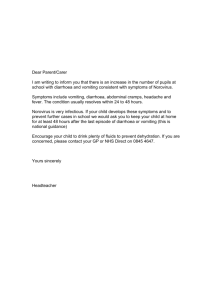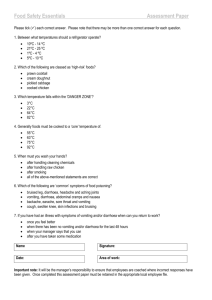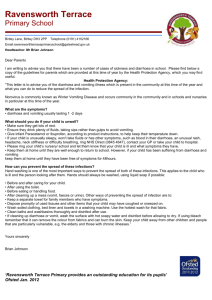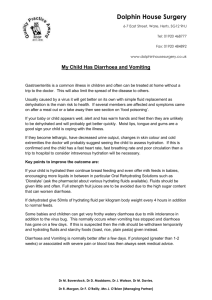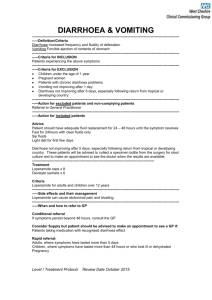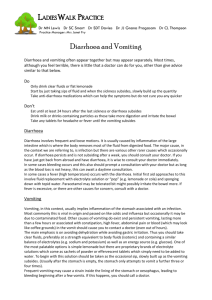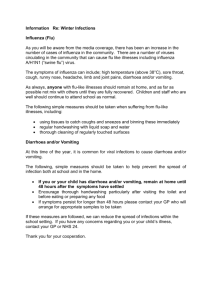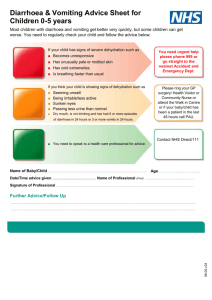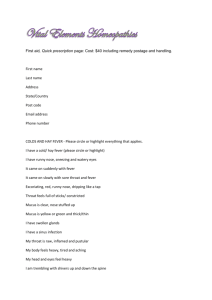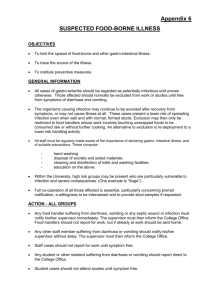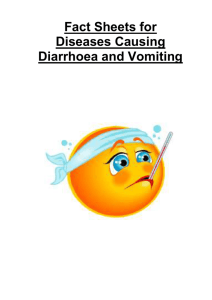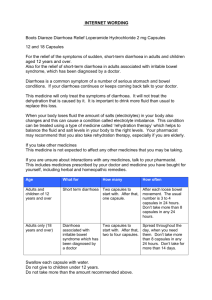Sickness Policy - Clutha District Council
advertisement
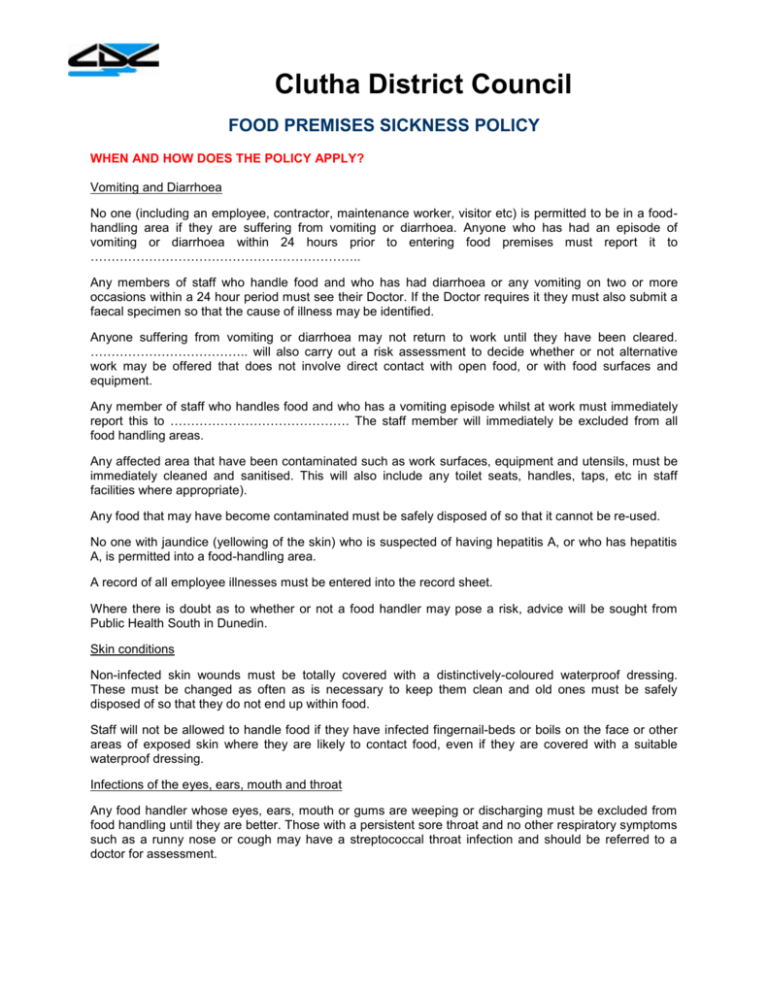
Clutha District Council FOOD PREMISES SICKNESS POLICY WHEN AND HOW DOES THE POLICY APPLY? Vomiting and Diarrhoea No one (including an employee, contractor, maintenance worker, visitor etc) is permitted to be in a foodhandling area if they are suffering from vomiting or diarrhoea. Anyone who has had an episode of vomiting or diarrhoea within 24 hours prior to entering food premises must report it to ……………………………………………………….. Any members of staff who handle food and who has had diarrhoea or any vomiting on two or more occasions within a 24 hour period must see their Doctor. If the Doctor requires it they must also submit a faecal specimen so that the cause of illness may be identified. Anyone suffering from vomiting or diarrhoea may not return to work until they have been cleared. ……………………………….. will also carry out a risk assessment to decide whether or not alternative work may be offered that does not involve direct contact with open food, or with food surfaces and equipment. Any member of staff who handles food and who has a vomiting episode whilst at work must immediately report this to ……………………………………. The staff member will immediately be excluded from all food handling areas. Any affected area that have been contaminated such as work surfaces, equipment and utensils, must be immediately cleaned and sanitised. This will also include any toilet seats, handles, taps, etc in staff facilities where appropriate). Any food that may have become contaminated must be safely disposed of so that it cannot be re-used. No one with jaundice (yellowing of the skin) who is suspected of having hepatitis A, or who has hepatitis A, is permitted into a food-handling area. A record of all employee illnesses must be entered into the record sheet. Where there is doubt as to whether or not a food handler may pose a risk, advice will be sought from Public Health South in Dunedin. Skin conditions Non-infected skin wounds must be totally covered with a distinctively-coloured waterproof dressing. These must be changed as often as is necessary to keep them clean and old ones must be safely disposed of so that they do not end up within food. Staff will not be allowed to handle food if they have infected fingernail-beds or boils on the face or other areas of exposed skin where they are likely to contact food, even if they are covered with a suitable waterproof dressing. Infections of the eyes, ears, mouth and throat Any food handler whose eyes, ears, mouth or gums are weeping or discharging must be excluded from food handling until they are better. Those with a persistent sore throat and no other respiratory symptoms such as a runny nose or cough may have a streptococcal throat infection and should be referred to a doctor for assessment. Other Factors which are not associated with contamination of food Some bowel disorders [such as Irritable Bowel Syndrome, Crohn's disease or ulcerative colitis] are not considered relevant to food safety, even though they may result in diarrhoea. Staff who suffer from such conditions should be advised to see their Doctor if they have not already done so. They must make sure that ……………………………………. Is aware of their condition and if any change from their normal bowel habit occurs. This must then be assumed to be infectious until shown to be otherwise. Chest and long-term respiratory diseases such as Tuberculosis are not spread through food handling. However, these types of disease may affect an individual's general health so as to make them unfit for work, or they may pose a risk of infection to others in the workplace. Public Health South must be contacted for more information on this. Blood borne infections such as HIV, Hepatitis B or C, do not themselves present a risk of contaminating food. As long as they are well, there is no reason why people with these infections should not be employed as food handlers. If staff suffering from these conditions cut themselves, any blood must be treated as if infected. Any area with blood spilled upon it must be thoroughly cleaned and sanitised, e.g. with a diluted bleach solution Any food that has had blood spilled upon it must be safely disposed of. For further advice on controlling the risk from infected persons in a food business the point of contact is a Health Protection Officer at Public Health South Their contact details are:PO Box 5144 Dunedin Phone (03) 474 1700 SICK LEAVE Staff who are prevented from working due to an illness that is relevant to this policy will be subject to the following sick leave entitlements:- RETURN TO WORK/ALTERNATIVE WORK Staff who have been required to say away from work will only be allowed to return to food handling duties in accordance with the clearance advice from the Medical Officer of Health. Advice on this will be sought from Public Health South as and when appropriate. The question of whether or not there is alternate work that staff can undertake when they are feeling well but have not received clearance will be decided in consultation with a Health Protection Officer from Public Health South. Where it is decided that such a return is possible, the staff member must not undertake any food handling work or work with equipment that is likely to come into contact with food until clearance has been given and a full return to work is allowed.
